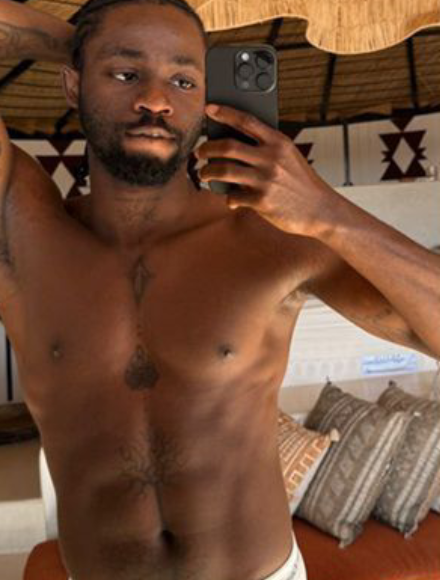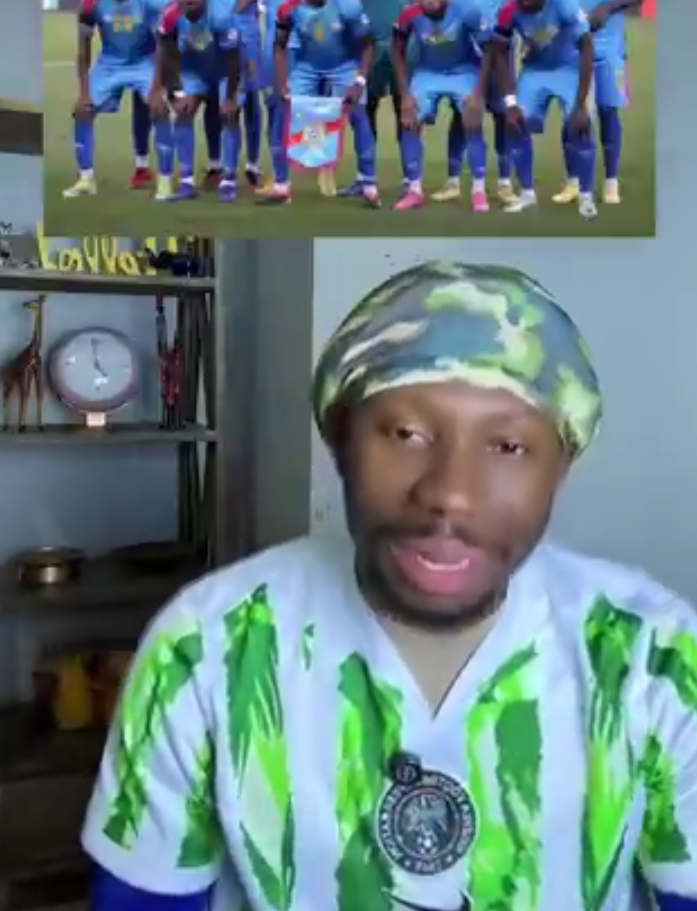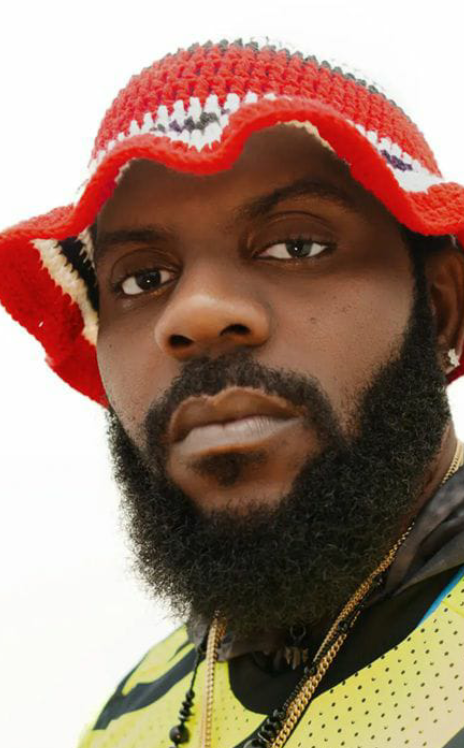
Freedom or Fragility? Omah Lay Fires Back After Being Called Gay for Posting in His Underwear

Nigerian singer Omah Lay has once again found himself at the center of social media buzz after sharing a series of photos that left fans divided. The Afrobeats star, known for his deep, introspective lyrics and moody style, recently posted pictures of himself wearing only his underwear — a move that instantly sparked controversy online. But what caught everyone’s attention wasn’t just the photos; it was his response to those who labeled him “gay” because of them.
Taking to his Instagram stories shortly after the uproar began, Omah Lay wrote, “Ni**as that have lost their freedom to ego and rigidity are in my DMs calling gay.” The blunt and unapologetic statement was a direct jab at those questioning his sexuality or trying to shame him for expressing himself freely. The post quickly spread across social media platforms, drawing thousands of reactions, debates, and memes, as Nigerians once again found a new subject for digital firestorms.
In an industry where male artists are often boxed into rigid definitions of masculinity, Omah Lay’s post appears to challenge the very norms that shape how artists — and men in general — are expected to present themselves. The photo series, which featured him in nothing but black underwear, struck some fans as bold and artistic, while others viewed it as unnecessary and “too revealing.” But for Omah Lay, whose music often reflects vulnerability and raw emotion, the act seemed to align with his larger creative persona — a man unafraid to bare his soul, and apparently, his skin.
Almost immediately after the photos went live, Twitter and Instagram comment sections were flooded. Some fans praised his confidence and sense of freedom, calling the photos “artistic expression” and “a form of self-love.” Others, however, weren’t so kind. Several users accused him of chasing attention or “losing it,” while a more conservative section of fans began throwing around homophobic slurs — an all-too-common pattern in Nigeria’s online culture.
Omah Lay’s fiery response, however, flipped the conversation on its head. By pointing out that “ego and rigidity” had taken away people’s freedom, the singer highlighted a deeper issue — the fear of self-expression in a society where deviation from traditional norms is often mocked or condemned. His words resonated with many who saw the backlash not just as an attack on him but as a reflection of a larger societal discomfort with vulnerability and openness, especially from men.
“Freedom to me is doing whatever makes you feel alive,” one fan tweeted in defense of the singer. “Omah Lay is just being himself, and people who are stuck in old ways don’t know how to handle that.” Another user echoed a similar sentiment: “We live in a country where men can’t even take artistic photos without being insulted. This is why many artists can’t truly express themselves.”
Still, not everyone was convinced. Critics accused the singer of seeking controversy to promote upcoming projects, while others argued that certain forms of self-expression simply don’t align with local values. “This is not Europe,” one commenter wrote. “There are cultural lines we shouldn’t cross. You can express art without going naked.” Yet, for every critical comment, there was another defending his right to express himself however he chooses.
The debate also reignited discussions around toxic masculinity and the pressures Nigerian men face in maintaining “hard guy” personas. For years, public displays of emotion, sensitivity, or aesthetic boldness have been viewed as signs of weakness among men in many African societies. But Omah Lay — alongside other artists like Fireboy DML, Rema, and BNXN — belongs to a new generation of musicians blurring the lines between masculine and expressive freedom. His photos, while provocative to some, can also be seen as a declaration of personal autonomy — a message that art, identity, and confidence cannot be dictated by public opinion.
Interestingly, Omah Lay’s recent appearance follows a pattern of artistic evolution that has been evident since the release of his emotionally charged projects like Boy Alone. The album and its deluxe edition revealed a side of the singer that was introspective and honest about mental health, heartbreak, and the struggles of fame. It’s this raw vulnerability that has often separated him from his peers — and this new social media moment might just be another layer of that ongoing self-expression.
A close look at his caption suggests more than just a defensive rant. By saying, “Ni**as that have lost their freedom to ego and rigidity,” Omah Lay may be critiquing how societal expectations can strip people of their individuality. He appears to be calling out the very culture that ridicules authenticity and glorifies conformity. In essence, he’s not just responding to trolls — he’s making a statement about the imprisonment of self-expression in the modern world.
Within hours, fan pages and gossip blogs reposted his statement, further fueling the debate. Influencers weighed in, psychologists analyzed the social undertones, and cultural commentators discussed whether Omah Lay’s “freedom” should be celebrated or condemned. Some celebrities subtly backed him by posting cryptic messages about “living freely” and “being yourself,” while others chose silence, perhaps wary of being dragged into another trending controversy.
Despite the noise, one thing remains clear — Omah Lay is unapologetic. His refusal to conform to societal expectations is part of what has made him a standout voice in Afrobeats. Just as he’s unafraid to blend genres and moods in his music, he’s now doing the same with his image. Whether it’s his emotional transparency in songs like Understand and I’m a Mess or his recent visual expression on social media, Omah Lay seems determined to keep breaking invisible barriers that dictate what an African man — and artist — should look or act like.
By nightfall, the outrage had begun to cool, replaced by a mix of admiration and grudging respect. Some users who initially mocked the singer later admitted that his confidence was “different” and even “refreshing.” A few even joked that he might have just started a new “Omah Lay Challenge” where men post photos celebrating body confidence — though that trend didn’t quite take off.
Whether fans agree with his actions or not, Omah Lay’s boldness once again proves that he’s an artist who doesn’t just make music — he sparks conversations. In a digital age where every post can trigger judgment or celebration, he’s shown that authenticity, even when misunderstood, is still the most powerful form of rebellion.
So, while some see underwear photos, others see art. While some shout “gay,” others see a man reclaiming his freedom. And perhaps that’s the point Omah Lay was trying to make all along — that real freedom isn’t about what you wear, but about refusing to let anyone’s opinion define who you are.


